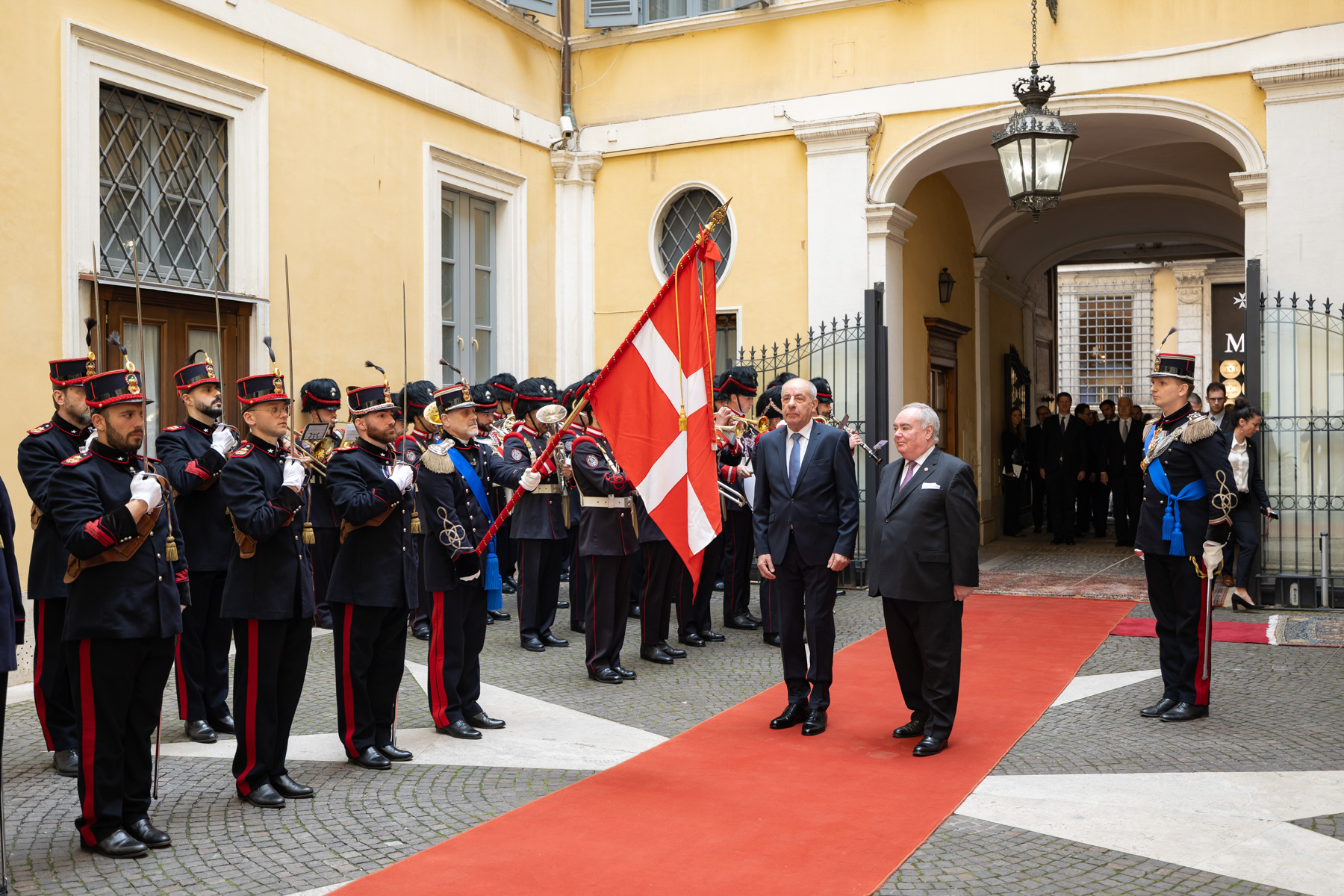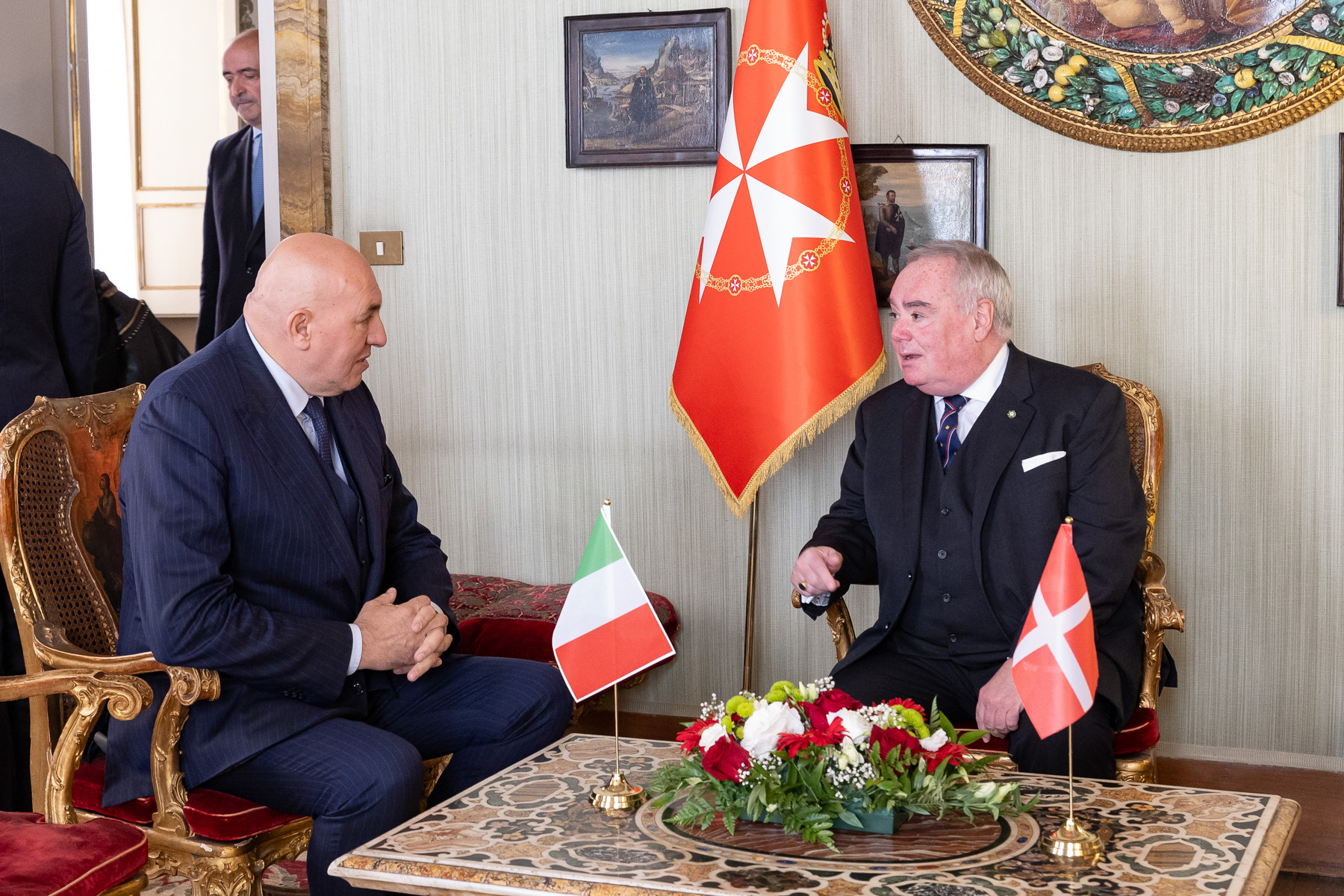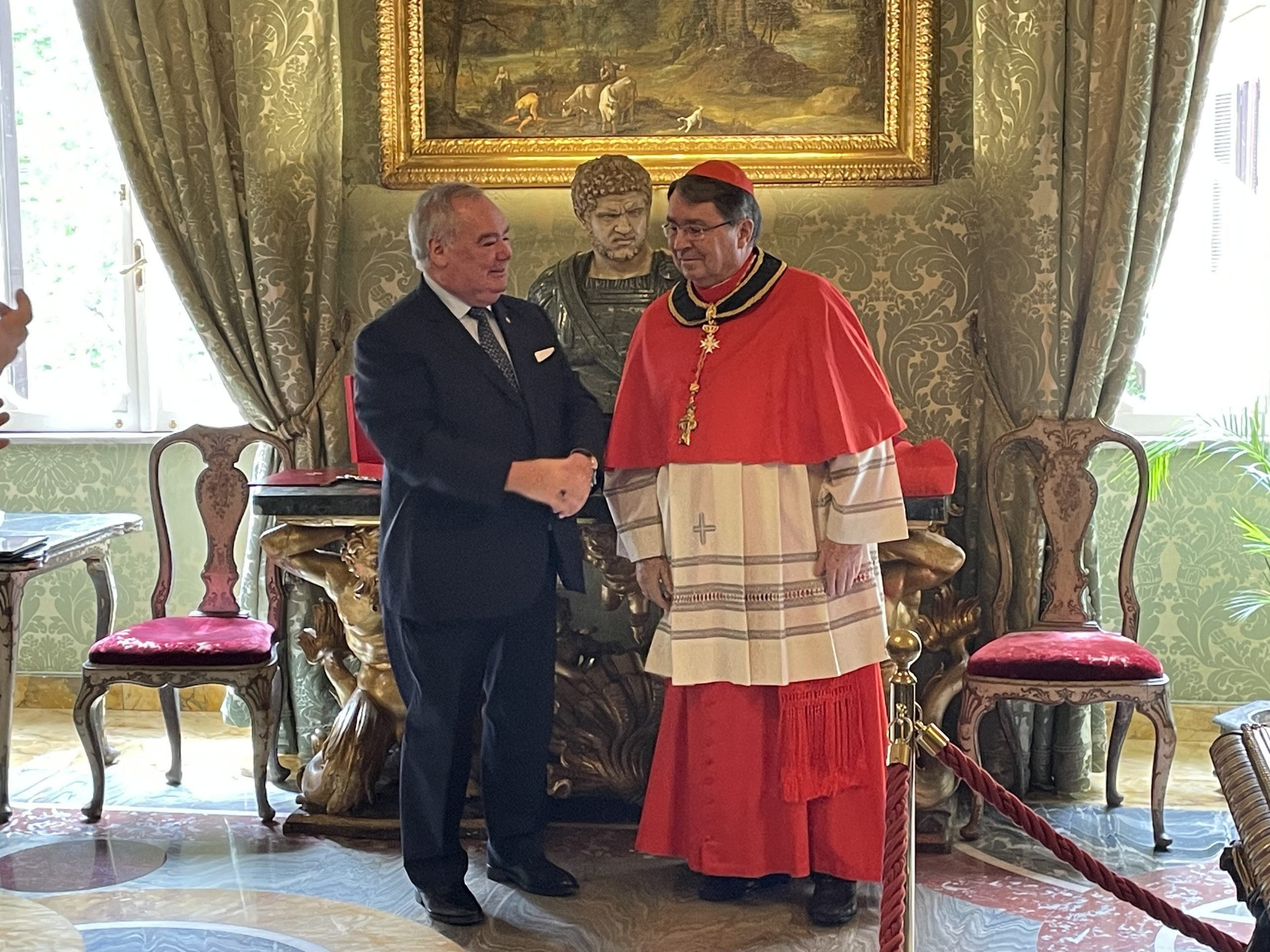Interview given by the Grand Master of the Order of Malta, Fra’ Andrew Bertie to Ludina Barzini, journalist of “Corriere della Sera”, on the occasion of the official visit to the President of Italian Republic, Carlo Azeglio Ciampi.
ROME – Fra’ Andrew Bertie, 78th Prince and Grand Master, lives and works in the Magistral Palace of the Sovereign Military Order of Malta, Via Condotti, in the heart of Rome. Born in London in 1929, Fra’ Bertie was educated by Benedictine monks. Winston Churchill was a relation and Queen Elizabeth II is related to him on his mother’s side; her maiden name was Stuart. He has a degree in modern history and taught French and Spanish in a Benedictine high school in Sussex. He has also been a journalist and is highly qualified in both judo and fencing. He took his perpetual vows in 1981. Elected Grand Master in 1988, Fra’ Bertie is the first Englishman to lead the Order. “I lead a religious order and am a head of state, albeit a small one: many of my activities concern spiritual, political and administrative matters. Today’s meeting with President Ciampi was important because it underlined the relations between the Republic of Italy and the Order of Malta that began in 1834, since which time our headquarters have been in Rome. Italy supports us, giving us a helping hand in international relations and, in certain cases, financial aid.”
How do you see the future in a world that is more and more globalised?
“We have created an international committee, with another centre for cooperation in the United States to work in the Americas. It is our answer to what Kofi Annan has declared: ‘globalisation must be something more than just the mere creation of ever larger markets. The economic sphere can no longer be held separate from a more complex political and social context’. For the past 900 years our goal has been to create hospitals, clinics, medical research, to bring help to the poor, the needy, the ailing, with no discrimination of race, religion or colour. For example, we have helped Cuba in a humanitarian and religious way, not a political one.”
Do you feel that there has been a scarcity of vocations in recent years?
“All the religious orders and the Church have felt a diminution in vocations. At present, we have about 50 aspirants who have taken their religious vows, which is more than in the past. Many of these candidates are in early middle age and working in successful careers, whilst there are also several widowers who wish to spend the rest of their lives in a more religious atmosphere.”
How do you handle the problems arising from terrorism?
“Our humanitarian missions also operate in Muslim countries. Different religions are not an obstacle to our work; for example, we have the Holy Family Hospital in Bethlehem, where 25,000 children have been born since 1990, primarily Christians and Arabs.”
You issue your own passports, stamps and money. What are your relations with the European Union?
“We will not try to enter the Union because we do not have the infrastructures. But we do have a delegation to the European Commission which helps us to develop projects for Africa, Europe and Latin America. We are the precursors of the European Union, because, for the past 900 years we have been supranational and primarily European.”
Where does your financing come from?
“At one time we were very wealthy, but because of events such as reforms and wars, and specifically the arrival of Napoleon Bonaparte, we lost almost all our property in Europe.
In each country where we have an organisation, the local office is responsible for financing and management. Our Minister of Finance keeps watch over everything. The Sovereign Council here finances the blood bank in Malta, the clinic on the ground floor of the Grand Magistry, and makes a substantial contribution to the hospital in Bethlehem. Our funds derive from collections, subscriptions, bequests and some property. Our strength is derived from our volunteers.”
Ludina Barzini










